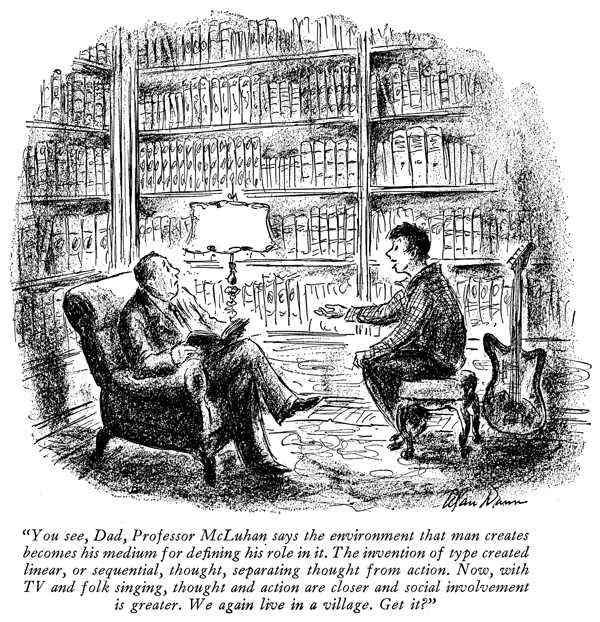Point of view: Understanding
Why Socrates and Jesus Christ didn't write anything?
Everything we know from Socrates comes from Plato, that tells us the following, in Phaedrus:
"The discovery of the alphabet will create forgetfulness in the learner's souls, because they will not use their memories, they will trust to the external written characters and not remember of themselves. Your invention is not an aid to memory... You give your disciples not truth, but only the semblance of truth; they will be hearers of many things and will have learned nothing."
"Writing is one thing, and knowledge another. Writing is a photograph of knowledge, but not the knowledge itself. Knowledge is a light in everyone. It is the heritage of all our ancestors were able to learn and that is latent in all that we transmitted, as well as the baobab already exists in potential in its seed. "
Harold Innis (Quoted by Mcluhan, 1972, p.viii)
"He (Innis) changed his procedure from working with a 'point of view' to that of the generating of insights by the method of 'interface'. By contrast, a 'point o view' is merely a way of looking at something. But an insight is the sudden awareness of a complex process of interaction."
Innis changed his procedure from working with a “point of view” to that of the generating of insights by the method of “interface” as it is named in chemistry. “Interface” refers to the interaction of substances in a kind of mutual irritation. In art and poetry this is precisely the technique of “symbolism” (Greek, symballein—to throw together) with its paratactic procedure of juxtaposing without connectives. It is the natural form of conversation or dialogue rather than of written discourse. In writing, the tendency is to isolate an aspect of some matter and to direct steady attention upon that aspect. In dialogue, there is an equally natural interplay of multiple aspects of any matter.
McLuhan's toolkit includes a firm knowledge of the entire written tradition, the translatio studii, from Homer to the present. Add to that a firm knowledge of the Trivium (Rhetoric, Dialectic and Grammar), an extensive knowledge of English Literature, prose and poetry, a profound knowledge of the English language, an immense vocabulary, and a deep and abiding curiosity about etymology, nourished by a knowledge of French, Latin, German, Greek, etc. The aphoristic style, learned from Bacon and from modern ad-men, provided much more than a way of expressing things. It supplied a way of thinking in outlines and seeing whole structures. Being able to perform traditional multi-level exegesis made short work of assessing complexity in prose and verse, old and new, and gave swift entry into a range of texts. Equally, long practice with Practical Criticism meant a quick and sure means of entry into any human “text” product or service
"It's inevitable,
that the world-pool of electronic information movement will toss us all about
like corks on a stormy sea, but we keep our cool during the descent into the
maelstrom, studying the process as it happens to us and what we can do about
it, we can come through...
I feel that we're standing on the threshold of a liberating and exhilarating
world in which the human tribe can become truly one family and man's consciousness
can be freed from the shackles of mechanical culture and enabled to ram the
cosmos."
If literate Western man
were really interested in preserving the most creative aspects of his civilisation,
he would not cower in his ivory tower bemoaning change, but would plunge himself
into the vortex of electric technology and, by understanding it, dictate his
new environment?turn ivory tower into control tower.
This means running some risks, leaving a secure refuge for a new and dangerous
outpost, abandoning an old and sterile mode of observation in favour of a new
one more in tune with the new evolving environment. Playboy Interview page 20
